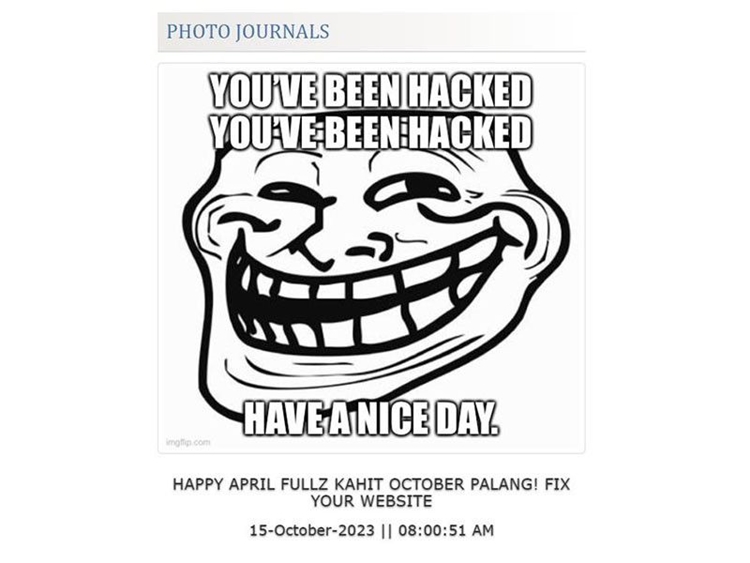Why should we worry if government websites are getting hacked?
In the past few days, several government websites experienced data breaches or hacking, including the Philippine Health Insurance Corporation, and the Philippine Statistics Authority with The House of Representatives as the latest victim.
After witnessing a surge in cyberattacks, the Senate’s technology team made adjustments to enhance security, and they have been monitoring the situation closely. Lawmakers are emphasizing the importance of strengthening the country’s cybersecurity and securing more funds for the Department of Information and Communications Technology.
But why should we worry if government websites are getting hacked? First, government websites store important data, like citizen information and secret government files. If these sites get hacked, it can lead to identity theft and expose confidential information.

Second, hacking government websites can disrupt essential services like tax filing and sharing health information. This can cause problems for people, harm the economy, and affect how the government functions. It also makes people doubt the government’s ability to keep their data safe, which can raise questions about the government’s skills in online security.
Third, hacking government websites can be part of more extensive online crimes that harm the country’s safety. If foreign groups are behind these attacks, it can strain relationships between countries. It can scare away investments, disrupt trade, and lead to financial problems for the government and businesses.

Fourth, hacking government websites is illegal and can result in serious consequences. Sometimes, hackers use these breaches to deceive people, control their thoughts, or spread false information. This can cause disagreements and problems in society. Lastly, if one hacking succeeds, it might encourage more hackers to try, causing more attacks on crucial parts of the country’s online systems.

Disclaimer: The opinions expressed in the above article belong solely to the author and do not reflect the views of the entire media organization. Additionally, the citations included are derived from credible sources and form the foundation of the author’s perspective. The author’s intent is not to present an inaccurate portrayal of the topic or exert influence on readers but rather to articulate their viewpoint in a formal manner.
